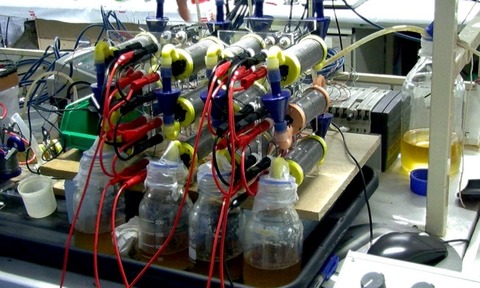Human waste could power future robotic "heart"
8 Nov 2013

Researchers from the University of the West of England (UWE) have developed an artificial heart capable of pumping human urine to power future robots.
The artificial device incorporates memory alloys that could be used to deliver urine to power future generations of “EcoBots”.
Researchers based at the Bristol Robotics Laboratory (BRL) - a joint venture between the UWE Bristol and the University of Bristol - have created four generations of EcoBots in the past 10 years.
“In the future, urine-powered EcoBots could perform environmental monitoring tasks
Lead author Peter Walters
Each EcoBot is powered by electricity-generating microbial fuel cells that employ live microorganisms to digest waste organic matter and generate low-level power.
Researchers have shown that these types of robots can generate electricity from rotten fruit and vegetables, dead flies, waste water, sludge and human urine.
Earlier this year, research from the BRL explained how microbial fuel cells could be used to power a mobile phone.
Essentially, microbial fuel cells (MFCs) are bio-electrochemical transducers that convert the energy found in organic matter, to electricity.
Lead author of the study Peter Walters said: “We speculate that in the future, urine-powered EcoBots could perform environmental monitoring tasks such as measuring temperature, humidity and waste water quality. A number of EcoBots could also function as a mobile, distributed sensor network.”
The innovative heart pump device has an internal volume of 24.5ml and is similar to a human heart in that it compresses the body of the pump to force the liquid out.
This was achieved using “artificial muscles” made from shape memory alloys - a group of smart materials that are able to revert to their original shape.
When heated with an electric current, the artificial muscles compressed a soft region in the centre of the heart-pump causing the fluid to be ejected through an outlet and pumped to a height that would be sufficient to deliver fluid to an EcoBot’s fuel cells.
A stack of 24 microbial fuel cells fed on urine were able to generate enough electricity to charge a capacitor. The energy stored in the capacitor was then used to start another cycle of pumping from the artificial heart.
Published today in the journal Bioinspiration and Biomimetrics, the group’s future research will focus on improving the efficiency of the device.

